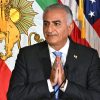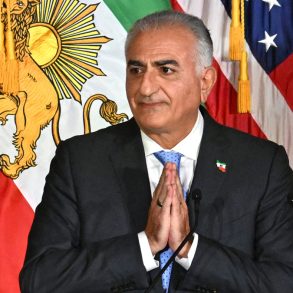President Trump signed two executive orders aimed at curbing cashless bail. One sets a national policy to pressure jurisdictions that have largely eliminated cash bail by reviewing federal funds they receive. The other targets Washington, D.C., directing federal authorities to hold more arrestees in federal custody when possible and to identify additional steps to push the city to abandon cashless bail. The orders tell Attorney General Pam Bondi to produce within 30 days a list of states and localities that have “substantially eliminated cash bail” for offenses that threaten public safety. Agency heads, working with the Office of Management and Budget, are instructed to identify grants and contracts that could be suspended or terminated consistent with law.
Trump has tasked Attorney General Pam Bondi to lead the identification of cashless-bail jurisdictions and to use her authorities in D.C. to detain more suspects pretrial. He also put the Office of Management and Budget and executive agencies on notice to find federal dollars that could be withheld. Support from allies is growing. Rep. Elise Stefanik said she would lead legislation to outlaw cashless bail policies.
The background on cashless bail
Cashless bail gained momentum after 2020 as cities and states reconsidered pretrial detention rules. D.C. moved away from cash bail decades ago. Illinois has eliminated cash bail. New Jersey and Alaska were early movers in reducing or ending it for many cases. New York’s 2019 law barred judges from setting bail for most misdemeanors and many nonviolent felonies, with the Kalief Browder case often cited by reformers as a reason to change the system.
Why Trump says it needs to end
Trump argues that cashless bail puts dangerous people back on the streets and leads to repeat arrests while cases are pending. In announcing the orders he said, “Cashless bail, we’re ending it. We’re starting by ending it in D.C.” He has tied the issue to broader crime crackdowns, warning that Baltimore is “out of control” and calling Chicago a “killing field.” The D.C. order says local policies cause law enforcement to arrest the same individuals multiple times and contribute to “disgraceful conditions.” The national order states that federal resources should not support jurisdictions with cashless bail and frames the policy as a step to protect “law-abiding, hard-working Americans.
Some point to large cities where violent incidents and repeat arrests have drawn headlines. They cite D.C. as a place where suspects are quickly released and rearrested. They also refer to Chicago and Baltimore as examples of serious crime problems that, in their view, are made worse when courts do not require upfront payment to secure release. The White House has signaled that, beyond D.C., it could target other cities through funding levers and pressure campaigns.
Others argue that cash bail creates a two-tiered justice system. Wealthy defendants pay and go home while poorer people sit in jail for the same charges. They say courts should assess risk to the community and likelihood of appearance, not the size of someone’s bank account. Reformers point to cases like Kalief Browder’s to argue that liberty should not depend on money.
The evidence does not show that bail reform causes more crime. Using data from 2015 through 2021, the Brennan Center for Justice studied 22 cities that changed bail laws and compared them with 11 that did not. The report found no statistically significant relationship between bail reform and crime rates. Reporting on the orders has likewise noted that studies have not backed claims that cashless bail increases crime, even as Trump and other critics say it endangers public safety.
Because the federal government has unusual authority in the nation’s capital, the administration is pursuing multiple paths. The order tells Bondi to hold arrestees in federal custody to the fullest extent allowed and to use additional tools created by an emergency order signed earlier this month. It also directs the budget office to identify actions that could pressure D.C. to change its pretrial release policies, including reviewing federal funds.
Within 30 days the attorney general must deliver the list of jurisdictions that have largely eliminated cash bail. Agencies will then map funding flows that could be paused or ended, consistent with law. Politically, the White House is widening its clash with leaders of liberal cities, and congressional allies are preparing bills that mirror the administration’s goals. The approach may face legal and political resistance in places that adopted cashless bail to avoid wealth-based detention.
Trump is betting that a forceful push against cashless bail will resonate with voters who want tougher public safety policies. Supporters say the change will prevent repeat offenses and restore accountability before trial. Skeptics counter that the data does not support claims that bail reform drives crime and that fairness in pretrial decisions should not depend on wealth. The next month will show how far the administration can go using executive power and funding pressure to reset local pretrial policies.








